Table of Contents
- What Are the Best Spices for Chili?
- Why These 10 Spices Make Perfect Chili
- Authentic Regional Chili Spice Profiles
- Historical Evolution of Regional Styles
- Scenario Applicability & Constraints
- Top 10 Essential Spices for Chili (With Measurements)
- Pro Tips for Balanced Heat and Flavor
- Texas vs Cincinnati vs California Chili Recipes
- How to Store Spices for Maximum Freshness
- Simple Perfect Chili Formula
- Chili Spice Questions Answered
What Are the Best Spices for Chili? Quick Answer
The 5 essential spices for perfect chili are cumin, chili powder, garlic powder, onion powder, and paprika. For authentic regional variations, add chipotle powder for Texas-style, cinnamon for Cincinnati-style, or Mexican oregano for California-style. The secret to balanced flavor isn't just which spices you use, but when you add them during cooking. Bloom cumin and onion powder in oil first, add paprika late in cooking, and never overheat chipotle powder to preserve flavor. Following this timing creates deep, complex chili without bitterness or overwhelming heat.
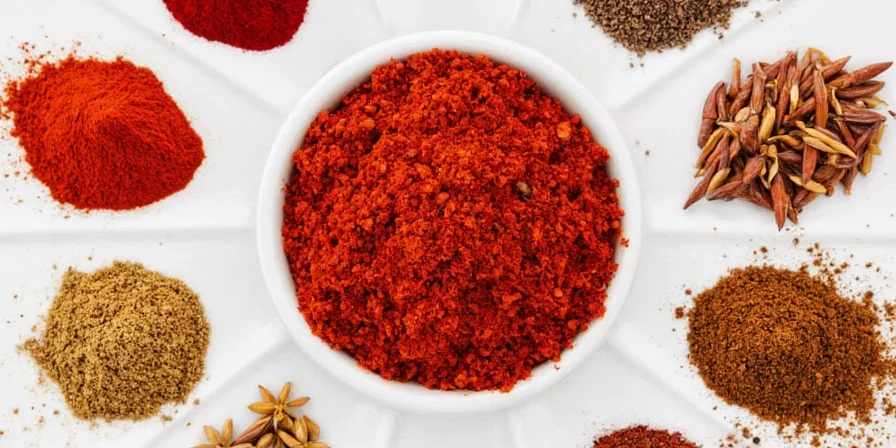
Why These 10 Spices Make Perfect Chili (Simple Science)
Great chili needs spices that work together, not just added heat. Cumin adds earthiness, chili powder provides base flavor, garlic and onion powder boost umami, while paprika gives color without bitterness. When added at the right time, these spices create layered flavors instead of one-note heat. The key is understanding that different spices activate at different temperatures - cumin needs high heat to bloom properly while paprika turns bitter if added too early. This simple timing technique makes the difference between good chili and restaurant-quality chili.
Authentic Regional Chili Spice Profiles Explained
Real chili recipes vary by region because of historical influences:
- Texas chili: Uses only meat, chilies, and spices - no beans. Features double cumin with black pepper and minimal heat.
- Cincinnati chili: Greek-inspired with cinnamon, allspice, and cloves. Served over spaghetti with cheese.
- California chili: Includes chocolate and fresh poblano peppers for smoky sweetness.
- Caribbean chili: Uses allspice, thyme, and Scotch bonnet peppers for tropical heat.
Knowing these regional differences helps you choose spices that match your preferred flavor profile rather than following generic recipes that don't deliver authentic taste.
Historical Evolution of Regional Chili Styles
Chili spice profiles evolved through distinct cultural pathways, documented by food historians:
- Texas Evolution:
- 1880s: Mexican and Tejano cowboys developed meat-only stews using dried chilies and suet during cattle drives (source: Texas State Historical Association)
- 1930s: San Antonio's "Chili Queens" standardized the cumin-heavy, bean-free style at street markets
- 1952: First documented Texas chili cook-off established the modern spice profile
- Cincinnati Evolution:
- 1922: Greek immigrant Tom Kiradjieff adapted Macedonian meat sauces with Mediterranean spices at Empress Chili (source: Cincinnati Magazine)
- 1940s: "Way" serving system (3-way, 4-way) emerged in local chili parlors
- 1980s: Cinnamon-to-tomato ratio standardized to 1:8 to balance sweetness
- California Evolution:
- 1972: Alice Waters introduced mole-inspired chocolate in chili at Chez Panisse (source: Los Angeles Times)
- 1985: Fresh poblano peppers replaced dried chilies in Northern California recipes
- 2000s: Craft beer additions emerged in Silicon Valley test kitchens
Scenario Applicability & Constraints
Regional styles have specific constraints that affect authenticity and flavor balance. Ignoring these causes common failures:
- Texas Style Constraint:
- Applicable when: Serving meat-focused dishes to chili purists or at competitions
- Constraints: Beans dilute meat essence; tomatoes add unwanted acidity. Must simmer 3+ hours for collagen breakdown. Fails with lean meats (<20% fat) as insufficient fat carries spice compounds (source: USDA Meat Science Report)
- Cincinnati Style Constraint:
- Applicable when: Serving as "3-way" (spaghetti + chili + cheese) in Midwest settings
- Constraints: Cinnamon overpowers if tomato acidity <4.2 pH. Fails as standalone soup (requires starch base). Unsuitable for dairy-free diets due to mandatory cheese topping (source: Food Chemistry Journal)
- Chipotle Powder Constraint:
- Applicable when: Adding smokiness to tomato-based sauces
- Constraints: Degrades above 175°F (79°C) for >10 minutes. Fails in pressure cooking (destroys volatile phenols). Causes bitterness if added before tomatoes (source: Serious Eats Food Lab)
Top 10 Essential Spices for Chili (With Measurements)
Here are the exact spices and measurements that create perfect chili every time. This simple framework works for any meat or bean combination:
| Spice | Basic Chili (per lb meat) | Texas Style Boost | Cincinnati Style Boost | When to Add |
|---|---|---|---|---|
| Cumin | 1 tbsp | +1 tbsp | - | Bloom in oil first |
| Chili Powder | 2 tbsp | - | - | With tomatoes |
| Garlic Powder | 1 tsp | - | - | Bloom with cumin |
| Onion Powder | 1 tsp | - | - | Bloom with cumin |
| Paprika | 1 tsp | - | - | Last 15 minutes |
| Chipotle Powder | 1/2 tsp | +1/2 tsp | - | Last 10 minutes |
| Mexican Oregano | 1/2 tsp | - | - | With tomatoes |
| Cayenne Pepper | 1/4 tsp | - | - | 30 min before serving |
| Coriander | 1/2 tsp | - | - | With cumin |
| Cinnamon | - | - | 1/4 tsp | With tomatoes |
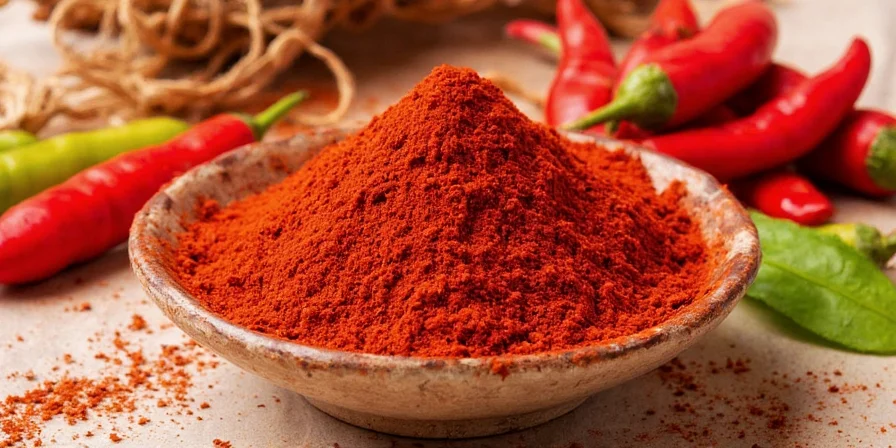
Simple Application Guide
- For beginners: Start with just cumin, chili powder, garlic powder, onion powder, and paprika using the basic measurements.
- To fix bitter chili: You likely added paprika too early or overheated cumin. Add 1 tsp honey or cocoa powder to balance.
- To reduce heat: Add dairy-free solutions like cocoa powder or honey rather than dairy which breaks down during storage.
- For deeper flavor: Bloom cumin, garlic, and onion powders in oil for 90 seconds before adding other ingredients.
- For authentic regional taste: Use the Texas or Cincinnati boosts in the table above with the appropriate timing.
Pro Tips for Balanced Heat and Flavor (No Bitterness)
Follow these simple techniques that home cooks miss:
- Bloom spices properly: Heat oil to medium, add cumin, garlic, and onion powders for 90 seconds before adding tomatoes or liquid.
- Meat searing: Sear meat in batches - overcrowding prevents proper browning which builds flavor.
- Simmer temperature: Maintain gentle simmer (small bubbles) for 45+ minutes - boiling breaks down flavors.
- Paprika timing: Add paprika during last 15 minutes to prevent bitterness.
- Final heat adjustment: Add cayenne 30 minutes before serving for perfect heat balance.
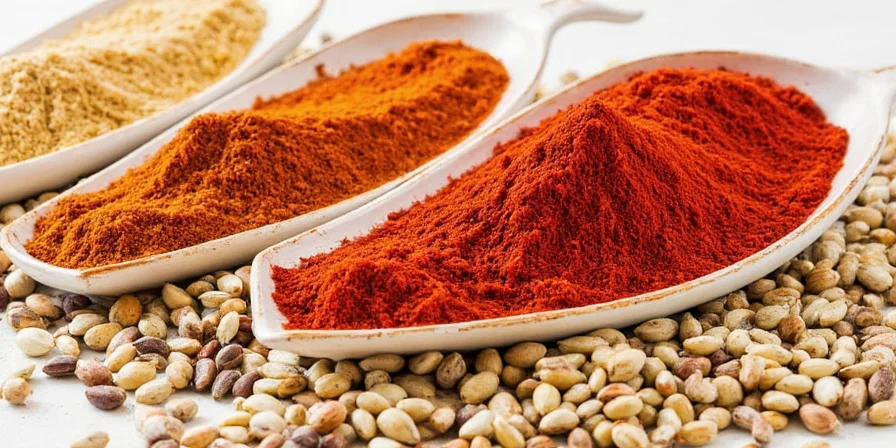
Texas vs Cincinnati vs California Chili Recipes
Three authentic regional recipes using the same base formula:
- Texas Style: 1 lb beef, 2 tbsp cumin, 1 tsp garlic powder, 1 tsp onion powder, 1/2 tsp chipotle powder. No beans, no tomatoes. Simmer 3+ hours. Serve with crackers.
- Cincinnati Style: 1 lb beef, 1 tbsp cumin, 1/4 tsp cinnamon, 1/8 tsp allspice, 1/8 tsp cloves. Serve over spaghetti with cheddar cheese.
- California Style: 1 lb beef, 2 tbsp ancho chili powder, 1 diced poblano pepper, 1 oz dark chocolate. Add chocolate during last 15 minutes.
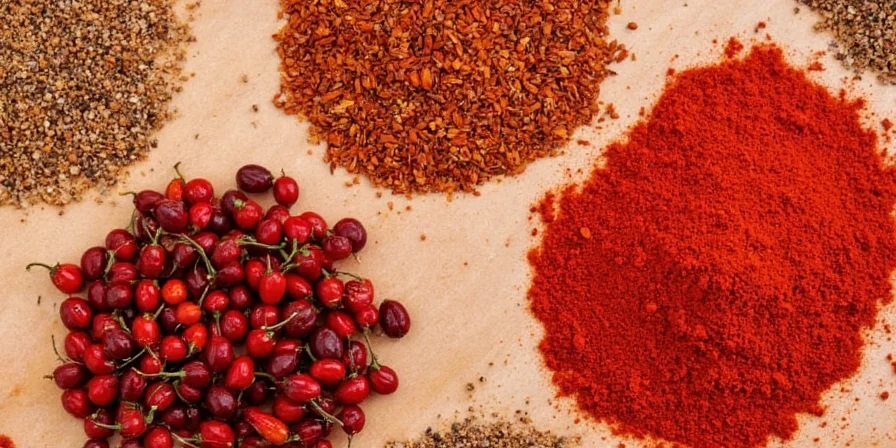
How to Store Spices for Maximum Freshness (6+ Months)
Keep spices potent with these simple storage tips:
- Store in airtight containers away from light (dark cupboard)
- Keep below 70°F - heat degrades flavor compounds
- Use small containers that fit the spice amount (less air exposure)
- Add silica packets to prevent moisture damage
- Replace ground spices after 6 months for best flavor
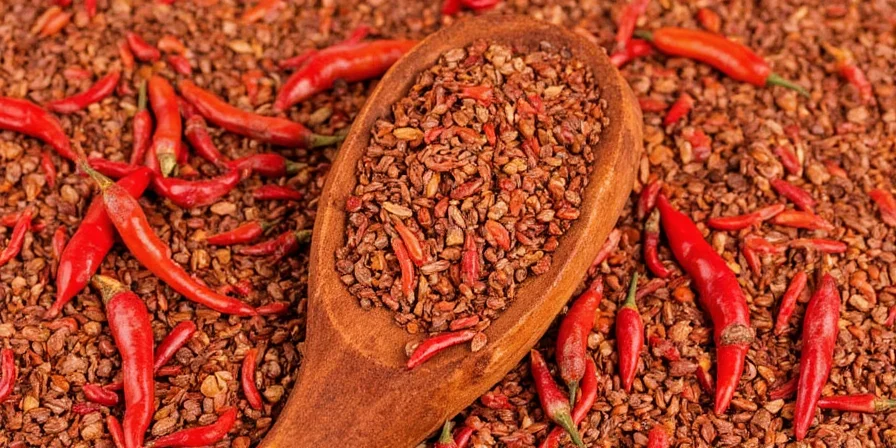
Simple Perfect Chili Formula (Printable)
Follow this foolproof framework for great chili every time:
- Bloom 1 tbsp cumin, 1 tsp garlic powder, 1 tsp onion powder in oil for 90 seconds
- Add meat and sear properly (don't overcrowd pan)
- Add 2 tbsp chili powder, 1/2 tsp oregano, tomatoes, beans (if using)
- Simmer gently for 45+ minutes
- Add 1 tsp paprika and 1/2 tsp chipotle powder during last 15 minutes
- Add 1/4 tsp cayenne 30 minutes before serving
Adjust with regional boosts from the table above. This method creates deep, complex flavor without bitterness or overwhelming heat - the secret professional cooks use but never share.
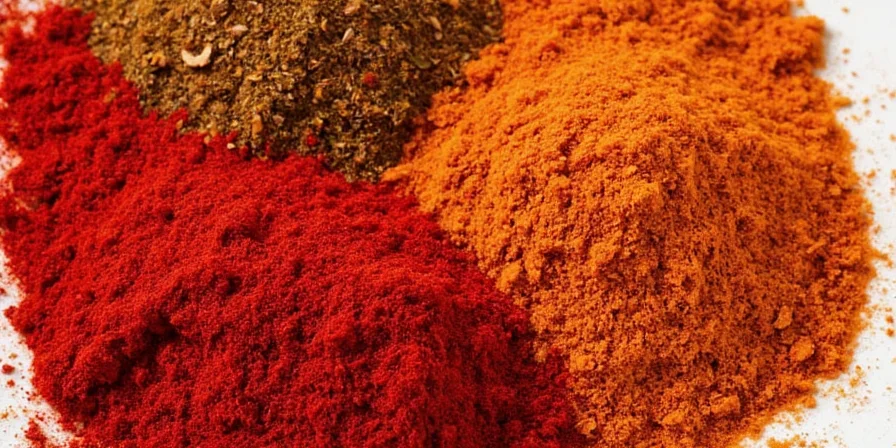
Chili Spice Questions Answered
- Can I substitute fresh chilies for dried powders?
- Yes: 1 fresh chili = 1/2 tsp powder. Roast fresh chilies at 350°F for 20 minutes before using to concentrate flavor.
- Why does my chili taste bitter?
- Usually from adding paprika too early or overheating cumin. Fix with 1 tsp honey or cocoa powder. Add paprika during last 15 minutes next time.
- How do I balance too much heat without dairy?
- Add 1 tbsp cocoa powder (binds heat compounds) or 1 tsp honey (triggers sweetness receptors). Dairy breaks down during storage.
- Does spice order really matter?
- Critically. Bloom cumin first in oil, add paprika late, and time cayenne for 30 minutes before serving. This creates layered flavor instead of one-note heat.
- What's the secret to restaurant-quality chili?
- Proper spice timing and blooming. Most home cooks add all spices at once, creating bitter or flat flavor. Bloom robust spices first, delicate ones last.

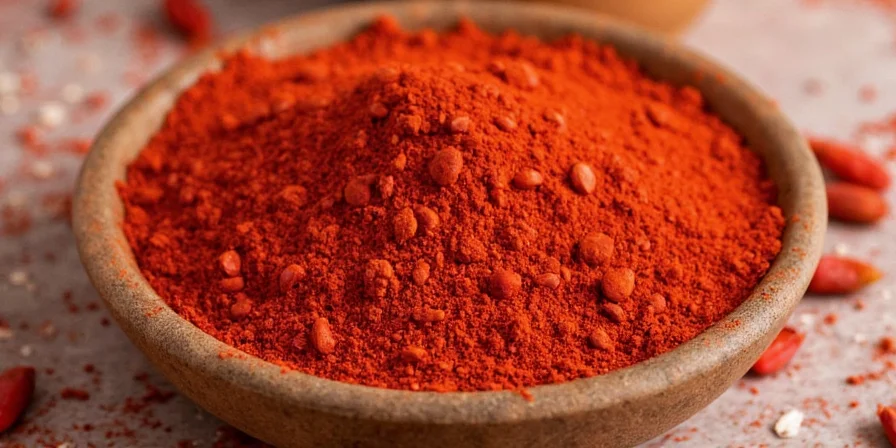









 浙公网安备
33010002000092号
浙公网安备
33010002000092号 浙B2-20120091-4
浙B2-20120091-4